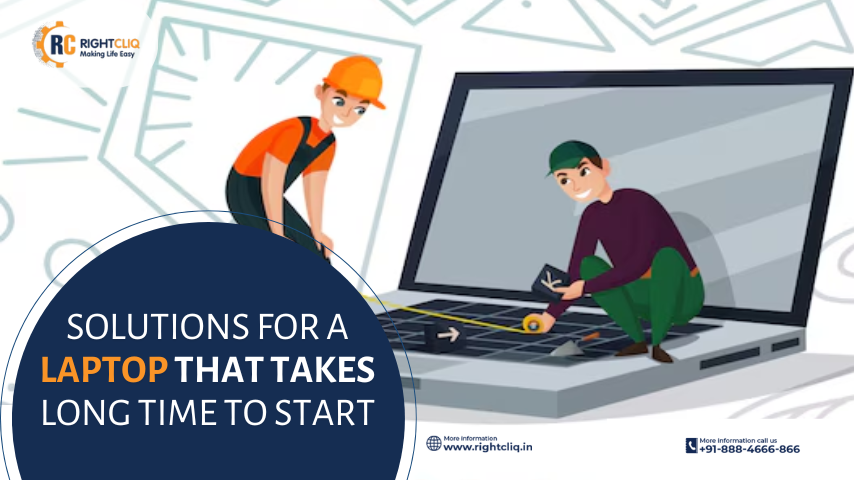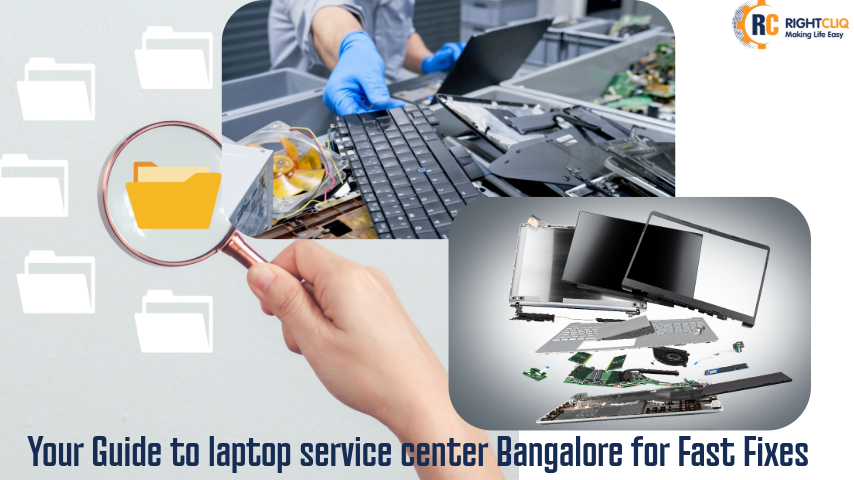Solutions for a Laptop That Takes Long Time to Start

Why Is Your Laptop Starting Slowly? Here’s How to Fix It
A slow laptop startup can be extremely annoying, but it is even more so when one is in need or in a hurry. Imagine, you have an important online meeting with your client; only your laptop won’t seem to boot up, and everything seems to take ages. The arrival of the deadline appears endless, like it will never arrive. However, this is a problem that a lot of people have encountered, so the good thing is that effective solutions might solve the problems of a slow laptop startup. The issue might be the laptop’s performance or the useless background apps running. Understanding of how to fix a slow laptop startup can actually save both your time and energy. Let’s have a look at a few actionable things you can do about this and get your day back on track.
1. Why Is Your Laptop Taking Forever to Boot?
A slow laptop startup can have several underlying causes. Your system collects junk files, old versions of software, and several startup programs as time passes by. All of these things congest the laptop’s processing capacity, making it very slow.
A fragmented hard disk drive is another common suspect particularly in the case of non-SSD devices. Moreover, the very presence of malware or viruses can, in fact, greatly contribute to laptop performance in such a way that the laptop might take too long to start.
To find out the exact cause, you need to first check which programs you have set to start when your computer powers up. Suppose that several applications are going to be launched at the startup time, then your laptop will hardly cope with such a situation.
2. Clean Up Your Startup Programs
Managing your laptop startup programs is one of the simplest ways to reduce a slow laptop startup issue. Many applications are set by default to launch at boot time. This is a very significant resource and memory part of the laptop that this improper decision harms.
To address this, open the Task Manager by pressing Ctrl + Shift + Esc and visit the Startup tab. In the below, you will find a list of programs that launch at the beginning of your computer. Immediately disable those which aren't necessary.
Program Name | Impact on Startup |
Spotify | High |
Adobe Updater | Medium |
Microsoft OneDrive | Low |
If you manage to reduce the number of startup programs, you will see a noticeable improvement in boot time.
3. Upgrade to an SSD for Lightning-Fast Boots
In case your laptop is still on the traditional HDD, you should switch to SSD and see the result. Solid-state drives (SSDs) have better speed, durability, and a greater degree of the slow laptop startup problem fixing properties than hard disks (HDDs).
On the other hand, unlike hard drives which are based on spinning disks, SSDs are based on flash memory. This allows you to access the data instantaneously. Therefore, your operating system and applications launch faster.
The transition from HDD to SSD may demand some expenditure, but the enhancement of laptop performance is worth it. Many users indicate that after the change from HDD to SSD, the start time of the computer decreases from minutes to seconds.
4. Perform Regular System Maintenance
Regular system maintenance is essential for the best functioning of your laptop. Temporary files, cache, and unused applications gather and consume your device's power over time.
The first step is to run disk cleanup tools to delete unnecessary files. Next, you need to defrag your computer's hard drive; if it is using an HDD (this isn’t necessary for SSDs). Make sure your drivers and the OS are also up-to-date.
Maintenance Task | Frequency |
Disk Cleanup | Weekly |
Defragmentation (HDD only) | Monthly |
Software Updates | As available |
If you follow these steps, you can fix startup issues and keep the system running smoothly.
5. Scan for Malware and Viruses
Malware and viruses are the antithesis of slow laptop startup problems. These programs are run in the background and literally, eat up resources while booting the process making it take time.
Take the necessary measures first by installing a dependable antivirus program and executing the regular scans. In case your laptop is quite infected, you can utilize a dedicated tool for malware removals to clean the system.
Prevention must be your utmost priority, so don't download files from unreliable sources, instead, ensure that your antivirus software is always current. To stress, the importance of a clean system can be seen in a fast boot time and overall laptop optimization.
6. Optimize Your Operating System Settings
At times, the cure for a slow laptop startup lies in your operating system settings. Such as Windows, which is with a collection of features for giving a better performance of the computer?
Change the Fast Startup option in your power settings to boot faster. The working principle is that it enables a combination of parts that have shutdown and features of the hibernation so that the disk and RAM memory of the computer are not affected by restarting at a short time. In addition, you can change the options of your visual effects to favor performance over looks.
Setting | Action |
Fast Startup | Enable |
Visual Effects | Adjust for best performance |
Power Plan | Set to High Performance |
This minimalist way of life can significantly impact the laptop performance and startup speed.
The bottom line is:
A slow laptop startup does not need to be an unending predicament. Through cleanup of startup materials, replacing the internal hard disk with a solid-state drive, conducting numerous maintenance tasks, detecting the laptop for malware, and making the operating system optimum you can without a doubt get a definite improvement in your booting duration.
Companies such as Rightcliq have the ability to diagnose and correct the problem where the applications don't open after the startup. They give you a workstation similar to the one you would have had when you purchased your laptop.
















